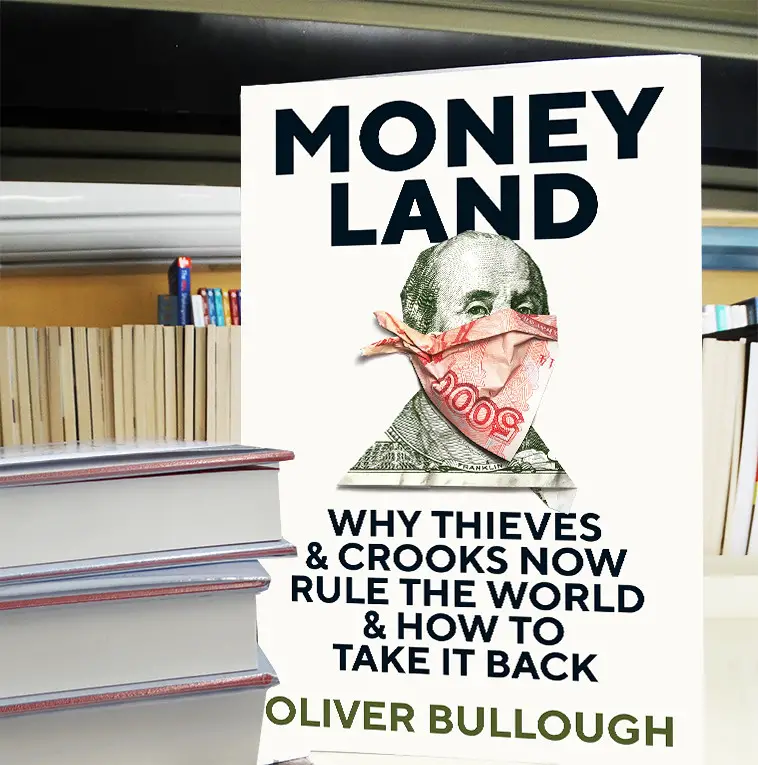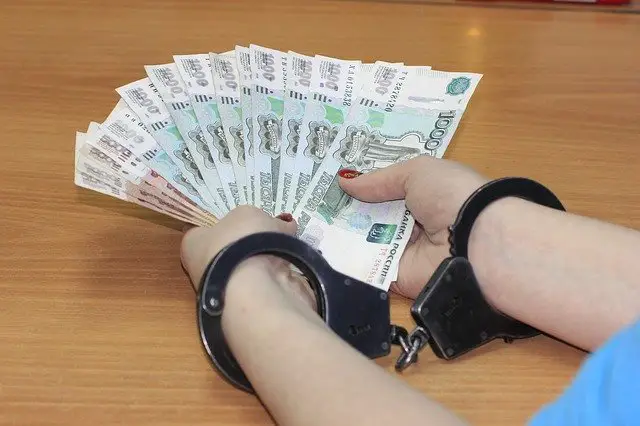We all want to know how the rich keep being rich. What is their secret? Do they avoid taxes and tariffs? How come some people are so lucky that their families leave so much money to them?
If you also wonder about these things, you came to the right place. You will find the answer to your questions in this summary. This summary will bring light to tips used by the rich to keep their status, including financial regulations, corruption, crime, and so on.
The rich have been pretty good at putting things together for their advantage. But especially after finance became global, such practices started to be quite difficult to manage. If you wish to understand how these practices were used, plunge into the following chapters.
Try Audible and Get Two Free Audiobooks

Chapter 1 – The post-war period made it nearly impossible to stabilize markets.
Before World War II, regulations regarding global finance were scarce. Money was exchanged rapidly among nations, which resulted in poverty and a globally felt sense of anxiety. The outcome of these factors was the war itself.
Emerging as the winning side of the war, the Allied powers used their power to put an end to the financial issue. In order to accomplish this, their resolve was to tie the value of national currencies to the US dollar. Thus, market fluctuations would no longer pose a threat to national currencies. The US dollar, fixed to the US gold reserves, acted as a stabilizer to global finances.
In addition, they decided that the only reason money would be permitted to travel overseas would be for long-term investments. Short-term international investments would not be allowed. The decision was a strict and effective one –but it was only a short-term solution.
These new regulations were successful for a while. But soon, bankers found new loopholes in the regulations to use them for personal benefits. For instance, despite the US dollars being regulated by the American banks, dollars stored overseas were not controlled by anyone. Therefore, bankers in London felt that they could use dollars for their benefit as the British government didn’t care to interfere.
This new currency was called Eurodollars. They were able to travel among countries similar to the pre-war days. The emergence of Eurodollars was the first fluctuation after the stable post-war framework.
Soon enough, a new and more daring phenomenon joined Eurodollars, called the Eurobonds.

The bonds were brand-new, they were nothing like the investments of the past. With a smart organizing process and discussions with the authorities, bankers presented a bunch of appealing characteristics to the brand-new investment. One of the best features of Eurobonds was that they were tax-free, but their benefits were not limited to that.
During the pre-war period, personal information of the buyers needed to be documented when bonds were issued. Eurobonds evaded such a restriction. Indeed, people who bought them were not documented at all; they received coupons to be reclaimed after the loan’s term had passed. People who desired to be secretive about their wealth were appealed by this feature of Eurobonds.
The circumstances were immensely different from what the Allies had idealized after coming as victorious from World War II. What they desired was to reign in global finance, but what they received at the end was a more aggressive market. Money was more global than ever.
Chapter 1 – Offshore havens create the best sphere for financial crimes and corruption.
Let’s say you deceived your country and got yourself a few billion dollars. Where would you store your money? Would you save it in your bank account? Or would you keep it under your mattress?
If you would do any of these, it would be very amateurish of you. Any kleptomaniac knows that the most appropriate way to store ill-gotten money is offshore. It is easy to find a place with favorable laws and financial discretion. For example, somewhere like Nevis, which is a Caribbean island where only 11,000 people live.
After Nevis became independent in the 1980s, some American lawyers led by Bill Barnard got the attention of Simeon Daniel. A few years later, Simeon changed Nevis into an island to stock secret assets with the guidance of the lawyers.

How did they manage this? For starters, Nevis decided that the island will not recognize the judgments of foreign courts. Thanks to this declaration, any attempt to gain access to a person’s assets needed to be conducted according to the island’s legal system. And what the system necessitated was to post a $100,000 bond to begin the case. If, by chance, a year has passed since the offense and the day of filing, the case would be dismissed.
Before all the hassle, though, one must be sure that the assets they want are in fact in Nevis. At this point, another obstacle comes in. The island has a “confidentiality ordinance” which does not allow publicization of financial information to those who are unable to confirm that they have the right to question it.
Nevis isn’t an anomaly, either. The British island called Jersey attracted attention with a similar case around the 2000s. A secretive company from Jersey, FIMACO caught the Russian Prosecutor General Yuri Skuratov’s eyes when the company gained tens of billions of dollars from Russia’s central bank. Yet, the purpose of the company remained a mystery. It was a shell.
Skuratov thought that the funds received by FIMACO were passed back to central bank officials via different channels. The situation implied that there was an immense corruption in the central bank where officials were having luxurious lives with hidden funds.
Skuratov tried to gain the attention of the public about FIMACO’s situation. But soon after he did, footage of someone with a similar appearance as him with a group of prostitutes was broadcasted by the state-controlled TV. Skuratov lost his job immediately after the scandal, and his successor didn’t continue investigating.
Chapter 2 – Rich people use corruption to gain money in the world’s poorest places.
You probably stumbled upon the TV show called Say Yes to the Dress? The premise is pretty simple. A group of brides-to-be visits a luxurious store in New York to decide on their ideal wedding dress each week. It seems like a plausible idea for a TV show so far, right?
Well, many people think so. But a particular episode that was broadcasted in May 2015 caused a stir. The episode was a special one focusing on three VIP brides with a seemingly extensive budget.
The bride who spent an extravagant amount of $200,000 set the record for the greatest amount spent in the shop. Obviously, that is an over-the-top amount—but why did it become a scandal?
The said bride-to-be was Naulila Diogo, whose father was a minister in Angola’s government, infamous for corruption. The amount Naulila was able to pay for a dress made people wonder about the integrity of the country’s politicians. It seemed as if the rich politicians had no regard for the impoverished citizens.
Life is difficult for the majority in Angola. With a life expectancy of forty-two years, a considerable majority of people live in poverty. Let’s examine Naulila’s case and why it was such a shock to people. If her father gained as much money as the president of Angola, he would still have to save for two and a half years to be able to afford his daughter’s shopping expenses. So, how did he manage to pay two hundred grand for Naulila’s wedding outfits as a mere government minister?

For starters, one-way politicians in Angola gain money is by corruption. Although the county is rich with oil reserves and diamond fields, the proceeds gained from these were shared by a few people. Indeed, the majority of officials were denounced for giving Western companies access to oil by bribing. The dishonesty doesn’t even stop there.
Between 2007 and 2010, there was an unexplained disappearance of $32 billion from the Angolan budget. In 2002, the governor of Angola’s central bank was seen transferring $50 million not his personal account. The money belonged to the government.
An organization named Global Witness pointed out the corruption in the country in 1999. However, their attempts ended in vain as a leading Angolan politician rebuked them. As you can guess that man was Bornito de Sousa, the father of the record-setting bride.
Some people were outraged when the episode was broadcasted; however, Sousa’s reputation went unharmed. He even became the vice president in 2017.
The case of Angola may seem unbelievable, but unfortunately, there are many countries with extreme corruption, some of which are even worse than Angola.
Chapter 3 – Corruption doesn’t care about national borders.
If you happen to be a citizen of a corruption-free country, you might think that these scenarios are the furthest things away from you. For example, suppose that you are a UK citizen. Compared to Russia or Angola, the law is strict in the UK and illegal dealings get caught early, right?
The answer is yes, and no. A significant characteristic of corruption is that it has the annoying ability to transcend national borders.
A clearer example of this feature is the 2006 murder of UK citizen Edwin Carter. Also known as Alexander Litvinenko, the former KGB agent lost his life due to polonium poisoning in November 2006 in London.
Polonium is incredibly hard to come across in the natural world, which means that there is almost no way that Litvinenko’s death was natural. Why was he murdered? Before his arrival in the UK, Litvinenko unveiled the existence of a secret Russian government organization that killed problematic politicians and businessmen.
Upon his immigration to London, Litvinenko kept giving out information about kleptocrats via private investigators. His shared research on a critical Russian magnate and politician resulted in the crumbling of a multimillion-dollar deal he was planning. And that probably is what led Litvinenko to his death.

Just two months after the information, Litvinenko was dead. Investigations concluded that two of his friends, who came to see him in London before he felt sick, were the culprits. But the said friends had already gone to Russia by the time Litvinenko died. And the Russian government did not accept cooperation with the British investigation.
Lugoyov, one of the accused friends, earned a medal for “services to the Fatherland” in addition to earning a place in the Russian parliament. He also sent one of Litvinenko’s friends a T-shirt. There was a text written in broken English on the t-shirt, saying “Polonium-210…nuclear death is knocking your door.”
It became apparent that the command to kill Litvinenko was given by a high-ranking person in the Russian government. What is worse, this was not the only incident. Numerous murders in the UK have been associated with the Russian government. National borders are ineffective in preventing these crimes, on the contrary, they create obstacles to investigations. So far, Russian authorities have been hesitant to cooperate.
As time passes, it starts to become clear that there is no safe way to unveil the crimes of kleptocrats in the world.
Chapter 4 – The period of Swiss financial privacy has ended, yet new problems have come to the surface.
In 2007, Bradley Birkenfeld, who worked at a bank, was sentenced to forty months in prison and earned over $100 million at the same time.
What did Birkenfeld do? He came clean to the American authorities about how he was a part of the Swiss tax evasion plan. The scheme deprived the US Treasury of $100 billion in tax revenue. Since he helped to unveil the evasion scheme, he was granted that amount of money. However, as he took part in the scheme, he also ended up in jail.
In the old days, Swiss banks worked together with clients to conceal assets from US authorities. After Birkenfeld came clean about the operation, everything changed.
After Birkenfeld’s confessions, the United States implemented more strict regulations to manage overseas banks. According to the new regulations, banks overseas were not to be trusted to assure that their clients paid taxes. All foreign institutions would be required to unveil the names and assets of US taxpayers on their books. If they didn’t cooperate, they would have to pay a tax of 30 percent on any asset income gained from the US.
The Act started functioning in 2015, and it was successful enough to hinder some kinds of tax evasion. But of course, the new system has its own flaws.

For example, the Common Reporting Standard (CRS) deals with secret assets from all around the world. It is a right step in the right direction. Before, governments exchanged financial account information only if they were requested to do so. But currently, the countries participating in the CRS are required to do so regardless of whether they are asked or not. This characteristic of the CRS makes it possible to identify people who attempt to evade taxes.
However, there is a problem. As mentioned before, dishonest gains pass from some of the poorest nations –for instance, Angola—at a concerning speed. Despite having access to numerous financial details, the majority of the countries are unable to search through databases for financial wrongdoings. As their budgets are already drained, they do not have enough manpower to go after experienced tax evaders.
Besides, there is one major country that does not share data in agreement with the CRS. And it’s not a classic tax haven: it’s the United States.
Despite the fact that foreign banks are required to inform the United States about the American citizens, the act is not bilateral. This situation makes the US an incredibly charming tax haven, we will explore the situation in the following chapter.
Chapter 5 – Most US states started to be regarded as international tax havens.
Certain countries are infamous for being tax havens—Switzerland, of course, and the Cayman Islands. Still, someone who is searching for a place to store dirty money wouldn’t think of the US state of South Dakota.
But we should. Why? In a word: trusts. A trust is a process of transferring your assets to a trustee, who is someone or an organization that obeys the instructions you have specified when making the agreement. Before the 2007 Swiss banking scandal, South Dakota’s trustees had $32.8 billion. Within a decade, they managed to hold $226 billion, meaning they had a sevenfold increase!
And it is not only South Dakota that is abusing trusts. Another state pioneers the practice: Nevada.
Suppose you’re a billionaire and you would like to find a way to pay as little tax as possible. You’ve stumbled upon the fact that laws in Nevada might help your situation—but what does it exactly offer you?
For starters, Nevada lets you create trusts that are valid for 365 years. In the US, the person who transfers assets to a descendant via a trust is required to pay taxes on the assets when the trust ends. When the trust lasts for 365 years, you automatically become able to avoid paying for the taxes.

There is more. Island tax havens like Nevis and Jersey create such difficult conditions for creditors to go after assets, and Nevada is pretty much the same. Two years after one puts their assets in a trust, they become untouchable.
Let’s say you are divorced, and your ex-wife wants to claim a part of the billions in your trust. Well, she will have a hard time trying to claim anything. There hasn’t been a lucky person who was able to extract assets from a Nevada trust yet.
And lastly, Nevada is able to hide your billions just like the Swiss banks. If a non-US resident is given power over the trust, then it becomes a foreign trust. What this means is that the US can’t share details of the trust with a foreign government.
The Common Reporting Standard also establishes that if the trust is registered with an American trustee, it becomes American as well. And of course, the United States doesn’t subscribe to the CRS.
The gist of the story is: Nevada may be the most convenient place to store your fortune.
Moneyland: Why Thieves and Crooks Now Rule the World and How To Take It Back by Oliver Bullough Book Review
After money went global, the rich sought ways to keep and hide their wealth from the world. Money transcended borders while the law did not, thus, the dishonest and the rich are able to conceal their wealth thanks to financial secrecy and laws that helped them. This situation leads to governments and authorities chasing after money around the globe.
Try Audible and Get Two Free Audiobooks
